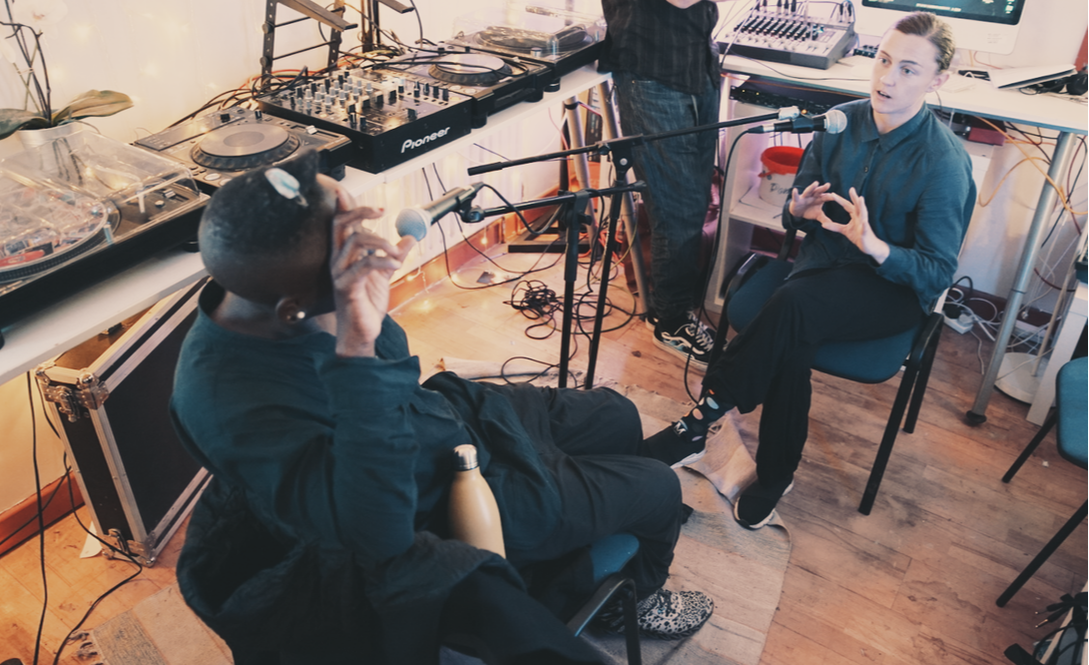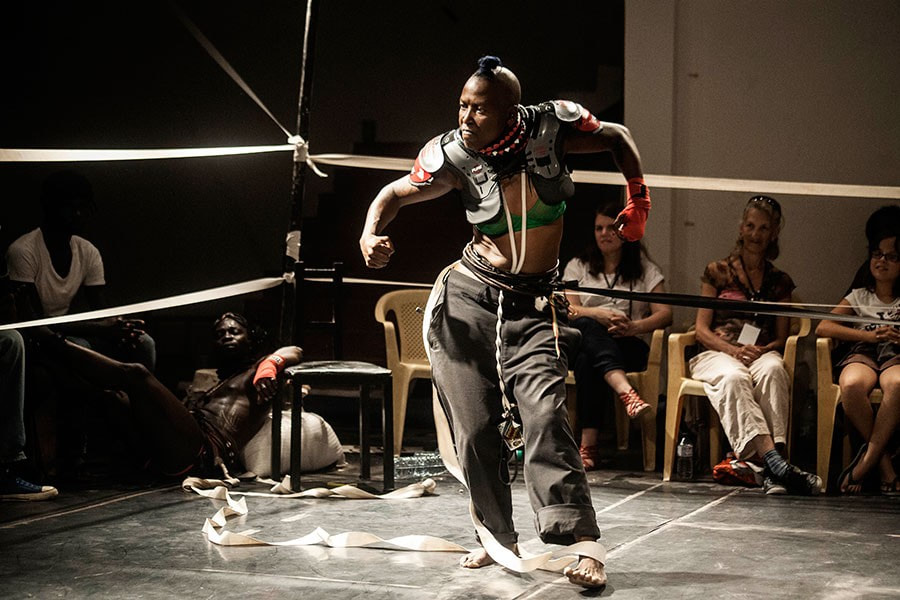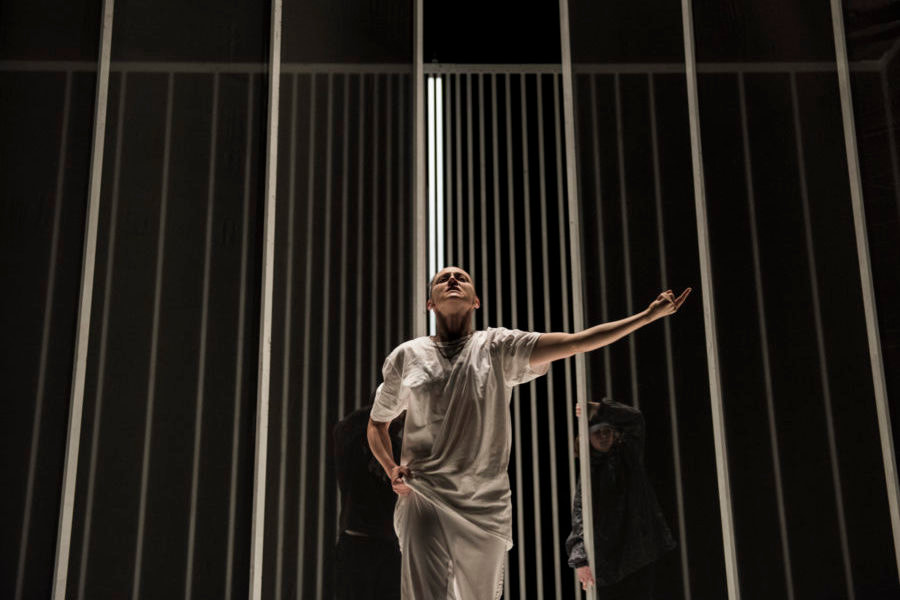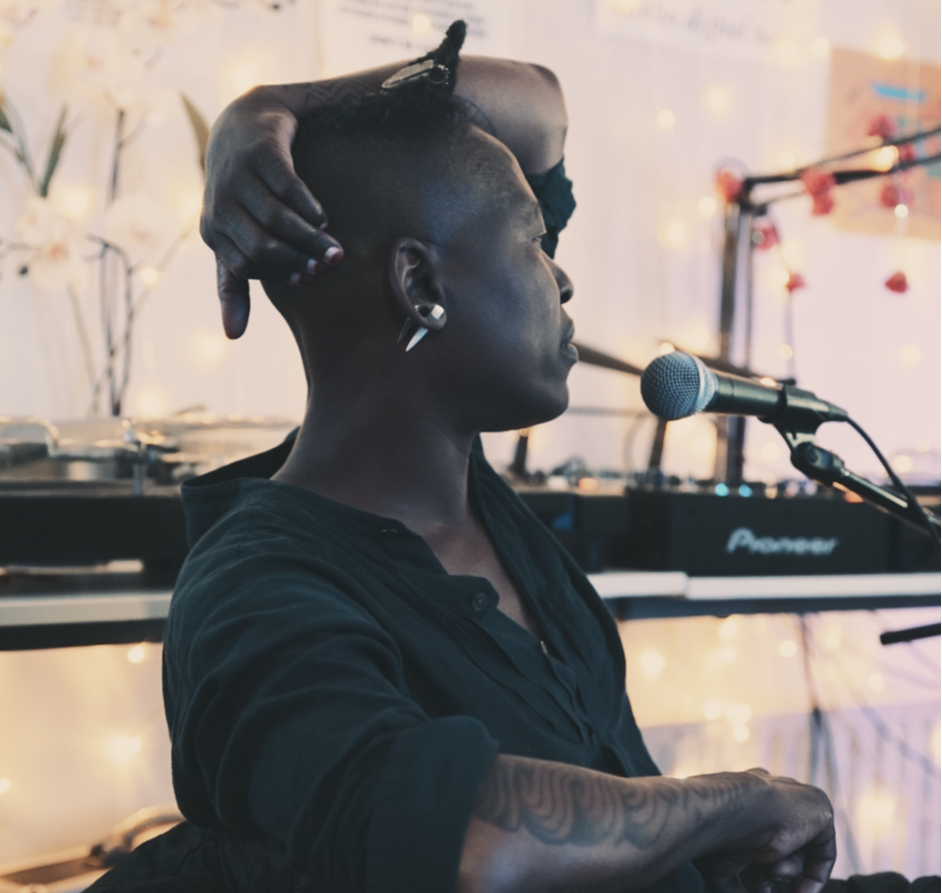nora chipaumire
+
oona doherty
in conversation
|
IN MAY 2019, WE INVITED ZIMBABWEAN-BORN, NEW YORK-BASED CHOREOGRAPHER AND PERFORMER NORA CHIPAUMIRE TO DUBLIN TO GIVE A WORKSHOP BASED ON HER PRACTICE. WHILE SHE WAS IN THE CITY, WE HOOKED NORA UP WITH BELFAST-BASED CHOREOGRAPHER AND PERFORMER OONA DOHERTY TO HAVE A CHAT ABOUT THEIR WORK, AND DANCE IN GENERAL.
BOTH OONA AND NORA ARE INTENSELY PHYSICAL AND DYNAMIC PERFORMERS, CONCERNED WITH THE ENERGY OF THE PERFORMATIVE MOMENT. THEIR CONVERSATION ADDRESSED ISSUES OF RACE, THE IDEA OF SELLING OUT AND ECONOMIES OF PERFORMANCE. THIS CONVERSATION WAS ORIGINALLY BROADCAST AS A PODCAST ON DUBLIN DIGITAL RADIO ON 08 OCTOBER 2019. YOU CAN LISTEN BACK OR READ THE TRANSCRIPT BELOW.
|



